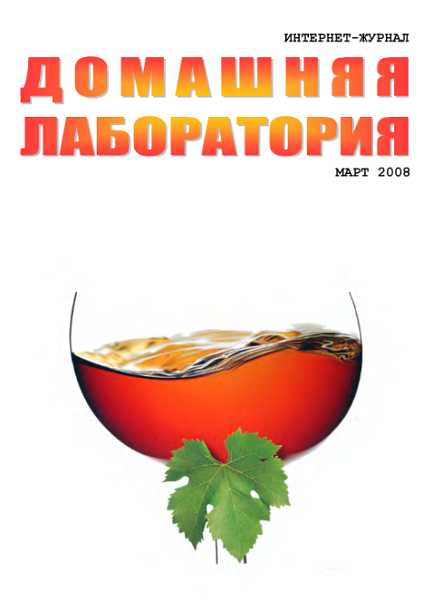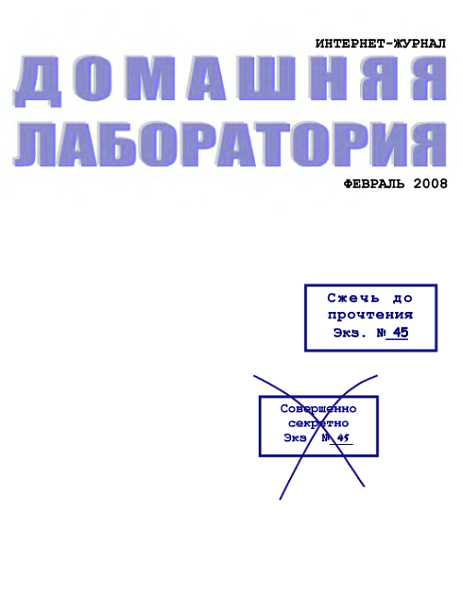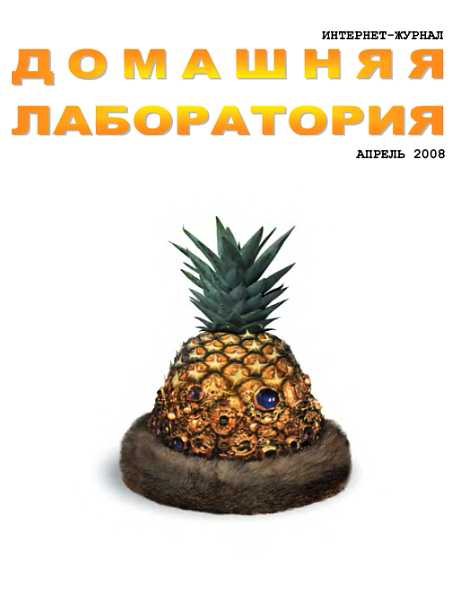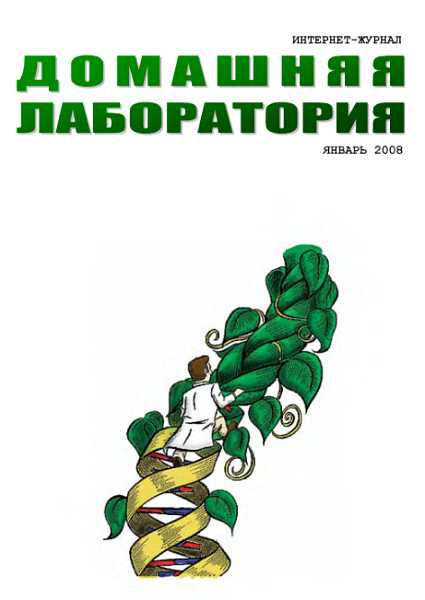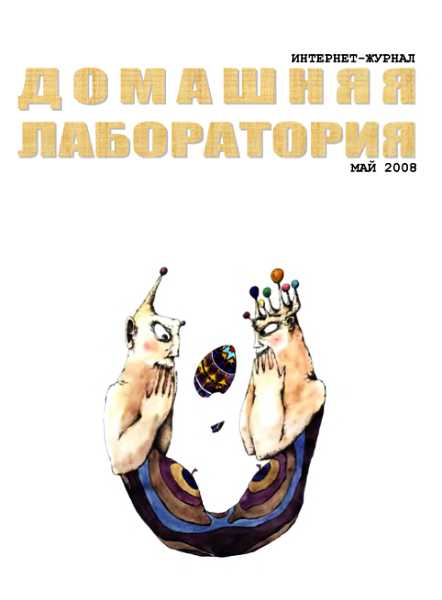Книга Интернет-журнал "Домашняя лаборатория", 2008 №6 - Журнал «Домашняя лаборатория»
На нашем литературном портале можно бесплатно читать книгу Интернет-журнал "Домашняя лаборатория", 2008 №6 - Журнал «Домашняя лаборатория» полная версия. Жанр: Разная литература / Домашняя. Онлайн библиотека дает возможность прочитать весь текст произведения на мобильном телефоне или десктопе даже без регистрации и СМС подтверждения на нашем сайте онлайн книг knizki.com.
Шрифт:
-
+
Интервал:
-
+
Закладка:
Сделать
Перейти на страницу:
Перейти на страницу:
Внимание!
Сайт сохраняет куки вашего браузера. Вы сможете в любой момент сделать закладку и продолжить прочтение книги «Интернет-журнал "Домашняя лаборатория", 2008 №6 - Журнал «Домашняя лаборатория»», после закрытия браузера.
Книги схожие с книгой «Интернет-журнал "Домашняя лаборатория", 2008 №6 - Журнал «Домашняя лаборатория»» от автора - Журнал «Домашняя лаборатория»:
Комментарии и отзывы (0) к книге "Интернет-журнал "Домашняя лаборатория", 2008 №6 - Журнал «Домашняя лаборатория»"




















